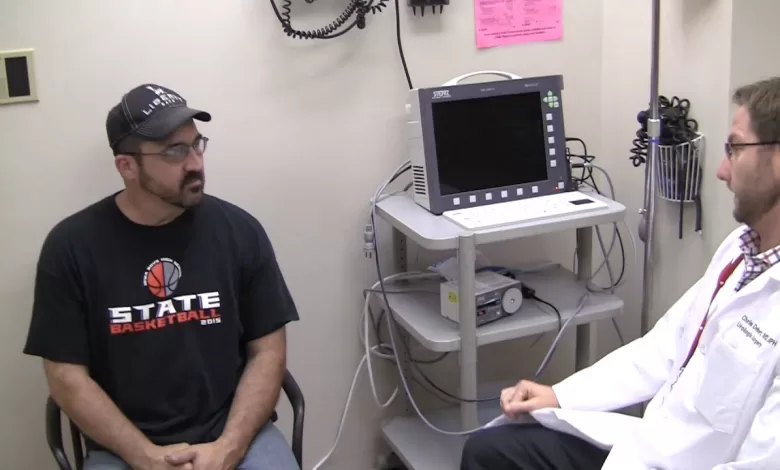The Link Between Testosterone and Depression Exploring the Connection

Testosterone depression a serious mental health condition that affects millions of people worldwide. It is characterized by feelings of sadness, hopelessness, and loss of interest in activities that were once enjoyable. While there are various factors that can contribute to depression, such as genetics, life events, and brain chemistry, recent research has also linked low testosterone levels to this mood disorder.
Testosterone is a hormone primarily known for its role in male sexual development and function. However, it also plays a significant role in overall health and well-being, including mental health.
In this blog post, we will explore the link between testosterone and depression, the effects of low testosterone on mental health, and how testosterone therapy can help with managing depression symptoms. We will also look into the connection between testosterone, depression, and anxiety, and how testosterone supplementation can improve mental health.
Understanding the Link Between Testosterone depression
Testosterone is a hormone produced mainly in the testes in males, but it is also present in small amounts in females. It is responsible for regulating sex drive, bone mass, muscle strength, and fat distribution. Additionally, testosterone also influences mood and emotions, making it an essential factor in mental health.
Studies have shown that men with hypogonadism, a condition where the body does not produce enough testosterone, are more likely to experience symptoms of depression. Hypogonadism can occur due to aging, certain medical conditions, or injury to the testicles. Research has also found a strong correlation between low testosterone levels and depression in men who have undergone prostate cancer treatment.
In women, low testosterone levels have been linked to an increased risk of developing depression during perimenopause and menopause. As women age, their ovaries produce less estrogen, which can result in a decrease in testosterone production. This hormonal imbalance can lead to mood swings, irritability, and a higher risk of depression.
Overall, there is evidence to suggest that testosterone plays a significant role in regulating mood and emotions, and an imbalance in this hormone can contribute to the development of depression.
The Effects of Low Testosterone on Mental Health
Low testosterone levels have been associated with several mental health conditions, including depression. When testosterone levels are low, it can affect various brain functions, leading to changes in mood, behavior, and cognition. Here are some of the ways low testosterone can impact mental health:
1. Testosterone depression – Decreased Libido
As mentioned earlier, testosterone plays a crucial role in sexual function. Low levels of this hormone can lead to a decreased sex drive, which can contribute to feelings of frustration, dissatisfaction, and even depression. Additionally, low testosterone levels can also cause erectile dysfunction, a condition that affects a man’s ability to achieve or maintain an erection. This can further add to feelings of inadequacy and low self-esteem, which are common symptoms of depression.
2. Testosterone depression – Mood Swings
Testosterone has a direct impact on mood regulation, and low levels of this hormone can lead to irritability, anger, and mood swings. This can make it challenging to manage daily stressors and can result in increased conflicts with others. As a result, individuals may become withdrawn, isolate themselves from social interactions, and experience feelings of loneliness, all of which are common symptoms of depression.
3. Testosterone depression – Cognitive Difficulties
Testosterone is also essential for cognitive function, such as memory, attention, and decision-making. Studies have shown that men with low testosterone levels may experience cognitive difficulties, such as trouble concentrating and forgetfulness. These cognitive impairments can make it challenging to perform daily tasks, leading to feelings of frustration and hopelessness, contributing to the development of depression.
Exploring the Role of Testosterone in Depression Treatment
While there are various treatment options available for depression, including therapy and medication, the role of testosterone in managing this mood disorder is often overlooked. However, research has shown that testosterone therapy can be effective in treating depression, particularly when low testosterone levels are a contributing factor.
Testosterone therapy involves supplementing the body with testosterone through injections, patches, gels, or pellets. This can increase testosterone levels to normal levels, improving overall health and well-being. Studies have found that testosterone therapy can help alleviate symptoms of depression, including low mood, fatigue, and irritability. Additionally, it has also been found to improve sexual function, social interactions, and quality of life.
How Testosterone Therapy Can Help with Depression
Testosterone therapy may help with depression in several ways:
1. Improving Mood
Studies have shown that testosterone therapy can improve mood and decrease feelings of depression. The hormone plays a crucial role in regulating serotonin, dopamine, and other neurotransmitters responsible for mood regulation. When testosterone levels are low, these neurotransmitters can become imbalanced, leading to symptoms of depression. By increasing testosterone levels, therapy can help restore balance and improve mood.
2. Enhancing Cognitive Function
As mentioned earlier, low testosterone levels can affect cognitive function, making it challenging to concentrate and remember details. Testosterone therapy can help improve cognitive function by enhancing brain cell activity and promoting the development of new neurons. This can result in improved memory, focus, and decision-making abilities, which can contribute to a better overall outlook on life and improved mental health.
3. Boosting Energy Levels
Low testosterone levels can cause fatigue and lack of energy, which can make it challenging to engage in daily activities and responsibilities. Testosterone therapy has been found to increase energy levels and improve overall vitality, resulting in increased motivation and productivity. This can have a significant impact on individuals struggling with depression, as they may feel more motivated to take care of themselves and engage in activities they once enjoyed.
The Impact of Testosterone Levels on Mood and Emotions
Testosterone does not just play a role in depression, but also in other mental health conditions such as anxiety and anger. Studies have shown that low testosterone levels can increase feelings of anxiety, making individuals more prone to panic attacks, phobias, and social anxiety. Additionally, testosterone deficiency has also been linked to increased irritability, aggression, and anger issues.
When testosterone levels are low, the body may produce more cortisol, a stress hormone. This can lead to an imbalance between testosterone and cortisol, resulting in heightened feelings of anxiety, irritability, and anger. Testosterone therapy can help restore this balance, reducing symptoms of anxiety and anger issues.
Addressing Testosterone Imbalance as a Potential Cause of Depression
As we have seen, there is a clear link between low testosterone levels and depression. However, it is essential to note that not everyone who experiences depression will have low testosterone levels. It is crucial to identify and address any potential hormonal imbalances that may be contributing to depression symptoms.
If you suspect your testosterone levels may be low, it is essential to consult with a healthcare professional to get a proper diagnosis. They may recommend getting a blood test to measure your testosterone levels and determine if testosterone therapy is necessary. It is also crucial to keep in mind that testosterone alone may not be the solution for managing depression. It is essential to explore all treatment options, including therapy and lifestyle changes, to improve overall mental health.
Testosterone and Depression: What Research Says
Numerous studies have explored the link between testosterone and depression, and while the results are not conclusive, they do suggest a significant association. Here are some key findings from recent research:
- A 2017 study published in the Journal of Psychiatric Research found that men with low testosterone levels were more likely to experience symptoms of depression, including low mood and lack of interest in activities.
- Another study published in the Journal of Clinical Endocrinology Metabolism found that older men with low testosterone levels were at a higher risk of developing depression than those with normal testosterone levels.
- A 2016 study published in the International Journal of Impotence Research found that testosterone therapy was effective in improving depression symptoms in men with erectile dysfunction.
- A 2019 study published in Translational Psychiatry found that testosterone therapy was effective in reducing depressive symptoms and improving overall quality of life in men with treatment-resistant depression.
While more research is needed to fully understand the link between testosterone and depression, these studies suggest that testosterone plays a crucial role in mental health and should be considered as a potential treatment option for managing depression symptoms.
Managing Depression Symptoms through Testosterone Replacement
If you have been diagnosed with low testosterone levels and are experiencing symptoms of depression, testosterone therapy may be an appropriate treatment option. However, it is essential to work closely with a healthcare professional to monitor your hormone levels and adjust the dosage accordingly. Additionally, it is also crucial to address any underlying mental health conditions and make lifestyle changes that can improve overall well-being.
Here are some steps you can take to manage depression symptoms while on testosterone therapy:
1. Stick to a Healthy Diet
Eating a balanced diet rich in fruits, vegetables, whole grains, lean protein, and healthy fats can help improve overall health and boost mood. Avoiding processed and sugary foods can also reduce inflammation, which has been linked to depression.
2. Engage in Regular Exercise
Exercise has been found to be an effective way to manage depression symptoms, as it releases endorphins, which can improve mood and reduce stress and anxiety. It can also help improve energy levels and sleep quality, which are both crucial for good mental health.
3. Practice Stress Management Techniques
Chronic stress can have a significant impact on mental health, including hormone production. It is essential to find healthy ways to manage stress, such as meditation, deep breathing, yoga, or talking to a therapist.
4. Get Enough Sleep
Lack of sleep can contribute to feelings of irritability, fatigue, and low mood. Aim for 7-9 hours of sleep each night to improve overall well-being.
The Connection Between Testosterone, Depression, and Anxiety
Apart from depression, low testosterone levels have also been linked to anxiety disorders. Anxiety is a common mental health condition characterized by excessive worrying, restlessness, and physical symptoms like rapid heart rate and sweating. Studies have found that men with low testosterone levels are more likely to experience symptoms of anxiety and panic attacks. However, the exact relationship between testosterone and anxiety is still unclear and requires further research.
Apart from having an impact on mood and emotions, low testosterone levels can also contribute to anxiety through other mechanisms. For instance, low testosterone levels have been associated with insomnia, which can lead to increased anxiety symptoms. Additionally, low testosterone levels can also lead to decreased muscle mass, increased body fat, and decreased bone density, all of which can affect self-esteem and confidence, leading to increased anxiety.
Improving Mental Health with Testosterone Supplementation
Testosterone therapy is not just beneficial for managing depression and anxiety, but it can also have a positive effect on overall mental health. By increasing energy levels, improving cognitive function, and enhancing mood regulation, testosterone supplementation can help individuals feel more confident, motivated, and resilient. This can have a significant impact on their overall quality of life, making them better equipped to handle daily stressors and challenges.
Additionally, testosterone therapy has also been found to improve libido and sexual function, which can improve intimacy in relationships and lead to increased satisfaction and happiness. Overall, testosterone therapy can help individuals live a more fulfilling and happier life, making it a valuable tool in the treatment of mental health conditions such as depression and anxiety.
Conclusion
Depression is a complex mental health condition that can have a significant impact on an individual’s life. While there are various factors that can contribute to its development, research has also found a strong link between low testosterone levels and depression. Low testosterone levels can lead to decreased libido, mood swings, and cognitive difficulties, which can worsen symptoms of depression. Testosterone therapy has been found to be an effective treatment option for managing depression symptoms by improving mood, cognitive function, and energy levels.
Additionally, testosterone supplementation can also reduce symptoms of anxiety and improve overall mental well-being. It is essential to consult with a healthcare professional to determine if testosterone therapy is suitable for you and to develop an individualized treatment plan that addresses all aspects of your health.

















